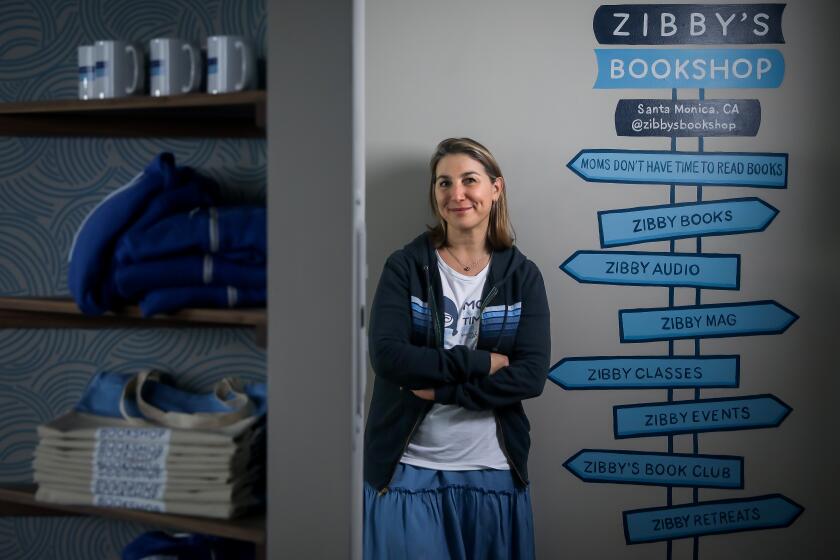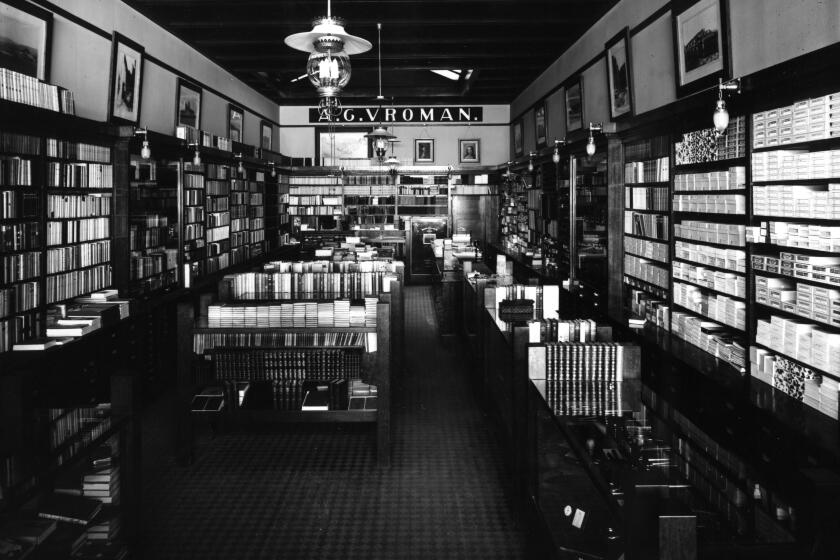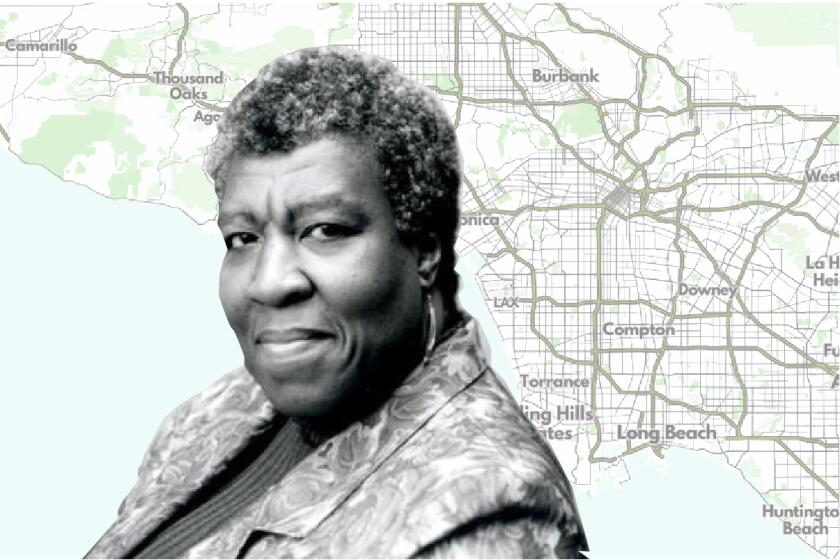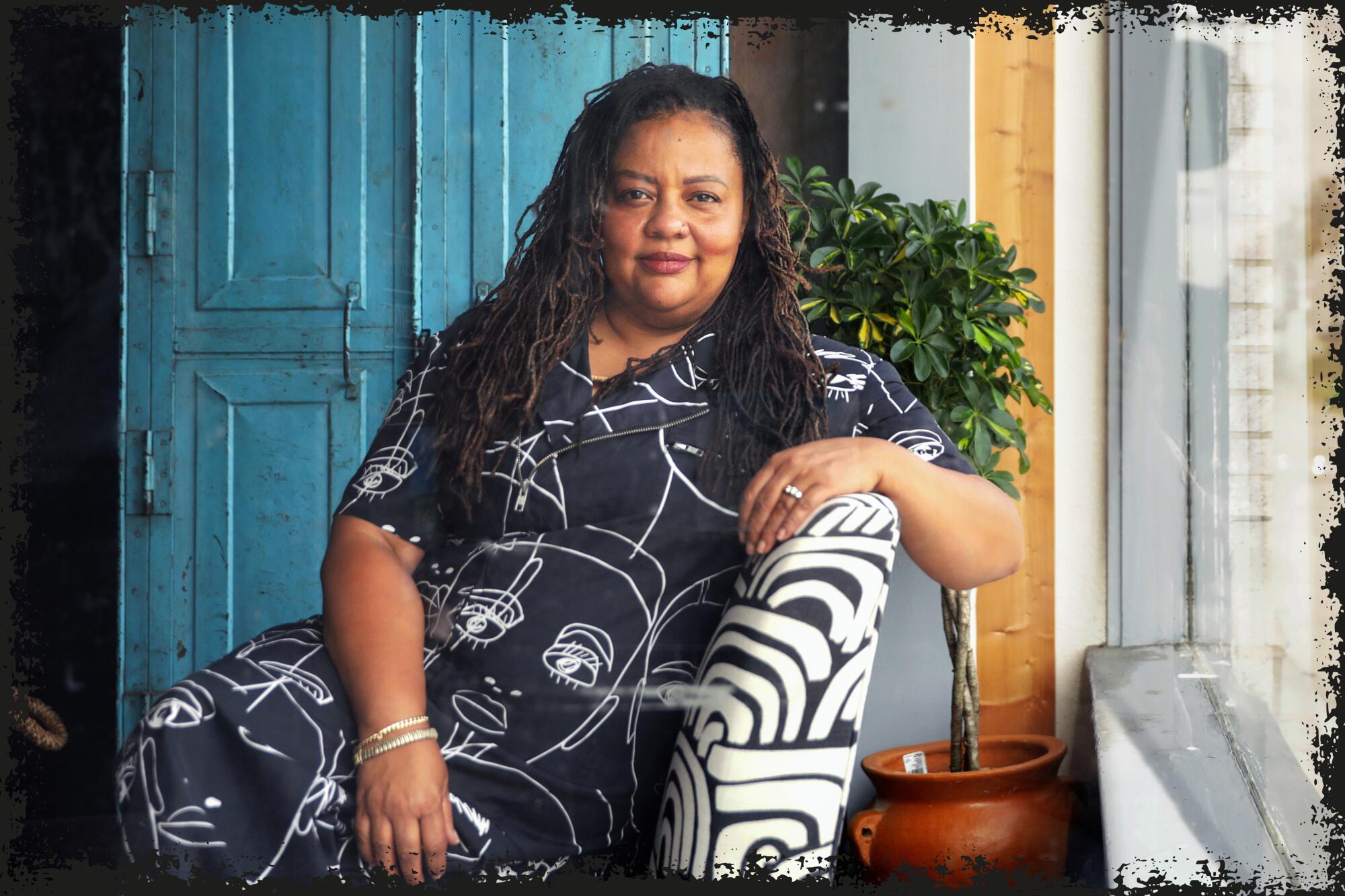
- Share via
On Nov. 22, after weeks of trying to find the right space for her dream, Nikki High signed a lease for a 621-square-foot space on Pasadena’s North Hill Avenue.
This is where she began in earnest to plot out her independent bookstore. Octavia’s Bookshelf would feature books by Black, Latino, Indigenous writers and other authors of color in the same neighborhood where Octavia E. Butler, the store’s namesake, lived and found inspiration for her novels. Now, all High needed was to spread the word — and get some funding.
High, 48, grew up in Altadena and spent most of her life in the area. For 15 years she had worked in the marketing department for Trader Joe’s, visiting cities across the country where the chain wanted to expand. An ardent reader who had dreamed for years of starting her own bookstore, she used her work trips to chat up bookshop owners about how they went about starting their businesses. When her beloved grandmother died suddenly last year, High decided it was time to take the leap.
Her family worried about the move. They asked whether it was a good idea to make a radical life change involving great financial risk. High admits she had her moments of doubt. The GoFundMe she launched was trudging along with the help of friends and family. And last summer, Eso Won Books, a prominent Black-owned bookstore in South Los Angeles, announced it would close its store. High, who frequented Eso Won, wondered what the closure might mean for a new bookstore with a similar focus.
The 65 essential bookstores of L.A. County: Their vibes, customers, books and testimonies from customers, writers and owners.
“There was that initial fear,” High said during an interview at her bookstore — which still sat empty in late January, save for a few tantalizing books by the window. “And then it was like, OK, but we have to keep showing up, and we have to bet on our community of readers and people with curious minds. I’m confident that those people are here in this area and beyond.”
Online, High shared her proudest accomplishment of 2022 on New Year’s Eve: “I took the leap and quit my job to open my very own bookstore.”
The next morning, she woke up to an overwhelming response. Her tweet garnered thousands of retweets, which materialized in the days afterward into $15,000 for her GoFundMe. She put the donations toward equipment and books. Authors emailed her to schedule book-signings.
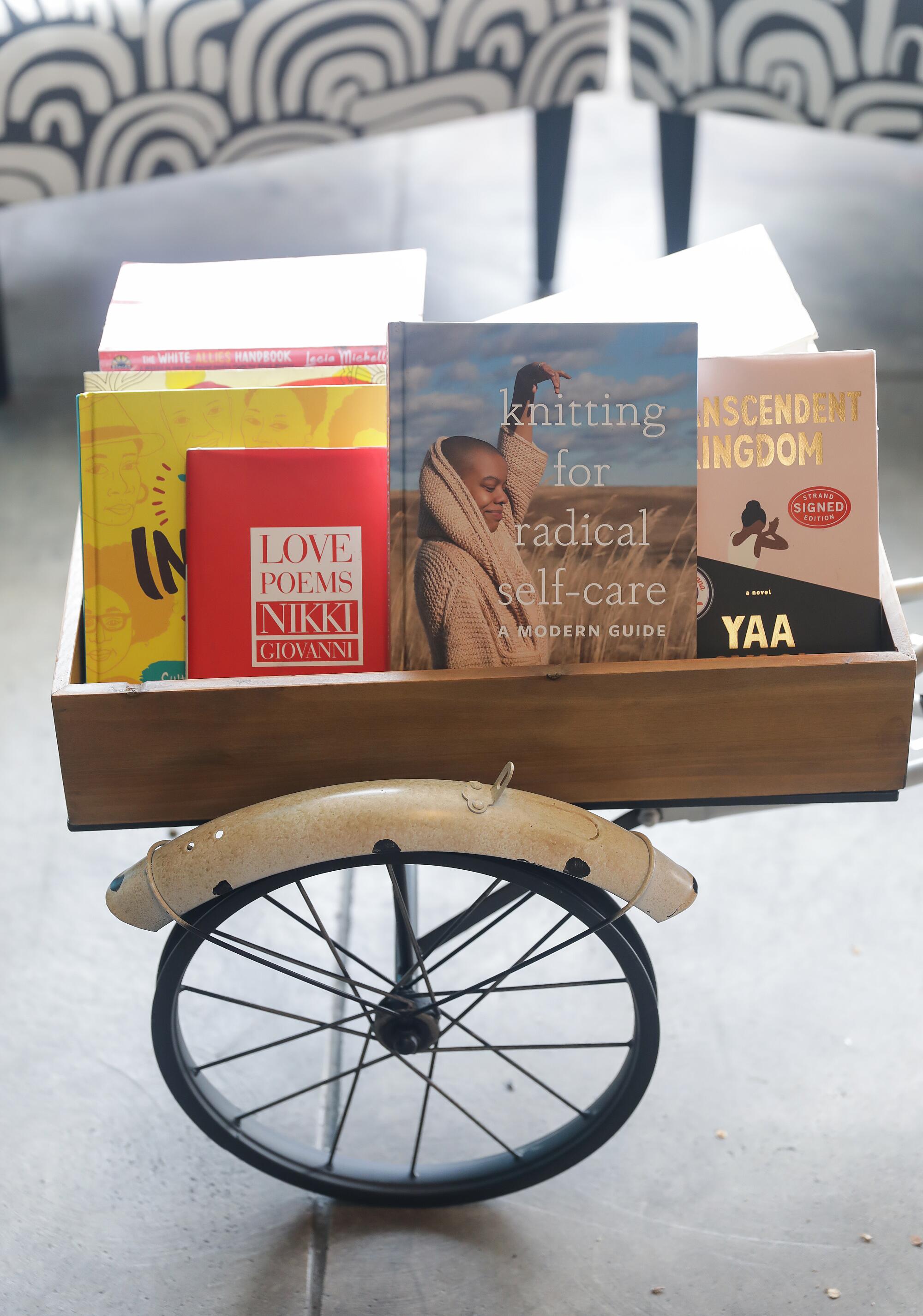
On Feb. 18, High will open the doors to Octavia’s Bookshelf, a store she said she hopes will offer a space that didn’t exist when she was growing up.
It turns out the business isn’t as stagnant as she feared. Despite the loss of Eso Won, bookstores like High’s are growing, according to the American Booksellers Assn., a national organization that represents independent bookstores.
In 2022, 203 independent bookstores opened, and the association has seen 20% growth in membership since the start of the COVID-19 pandemic in 2020, said Allison Hill, chief executive of the organization. California saw 18 new bookstores open last year, 14 of them owned by people of color. In L.A., North Figueroa Bookshop opened in Highland Park last fall, and Zibby’s Bookshop, way across town in Santa Monica, will open the same day as Octavia’s.
From her wildly successful podcast, Zibby Owens has built a media empire, complete with her own publishing company and, starting Feb. 18, a Santa Monica bookstore.
High’s shop won’t be the first in L.A. to be owned by women of color. Since 2019, at least two others have opened — the Salt Eaters in Inglewood and Reparations Club in Crenshaw. But this will be a first for the Pasadena area.
High settled on the store name because she always wondered what would be on Butler’s bookshelf at home if she could have ever peeked in. (The author died in 2006, but her works have recently had a resurgence culminating in several screen adaptations, including Hulu’s “Kindred” late last year). High wanted her shop to feel as curated and intimate as that imagined shelf. She speculated that Butler, “our queen of Pasadena,” would have stocked the classics — James Baldwin, Audre Lorde, Toni Morrison, Langston Hughes.
Of course there will be plenty of Butler too, alongside newer writers of color including author Roxane Gay, poet Elizabeth Acevedo and Ugandan American Jessica Nabongo, who chronicled her journey to every country in the world.
The shop is also inspired by High’s belief that everyone has an “Octavia” — someone who loves books, loans out of their personal library and gives wise advice. They are “these different people in your life that have collections of books that make you curious and excited to read,” High said. Her grandmother, who offered unwavering support for her dream, was her Octavia.
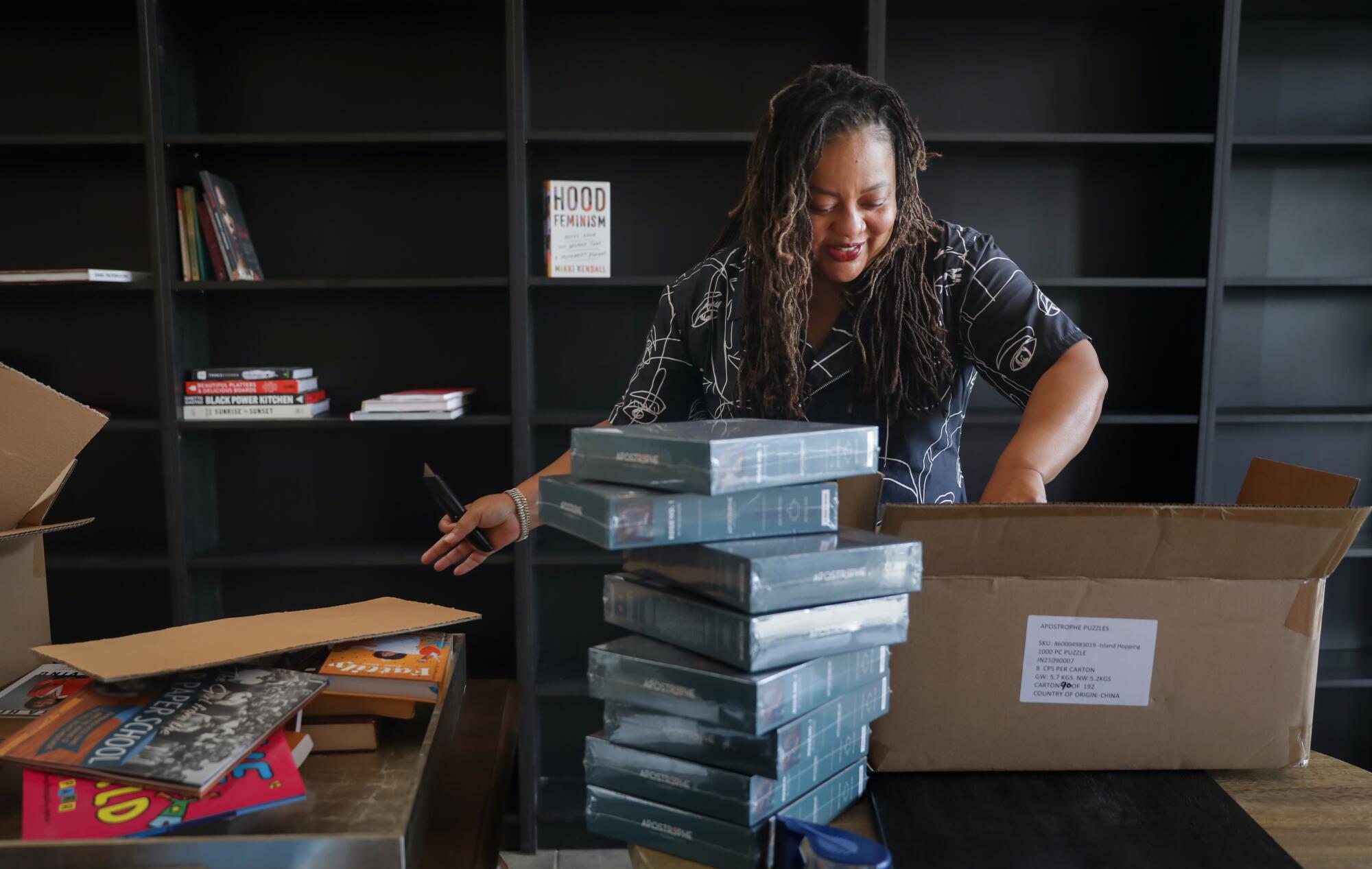
High took some time to find the right place — perhaps owing to some of the same obstacles faced by Butler and other women of color. In one instance, she said, she emailed a property manager who expressed excitement about an independent bookstore specializing in diverse books at their site. But when she arrived, she felt a shift.
“Once he realized it was me, his face just dropped and he said, ‘I don’t think this is the right space for you,’ and I just said, ‘OK, thank you,’ and I got back in my car and sobbed,” said High, who is Black. “I was so humiliated.”
She believes, however, that she’s ended up at the right place. Her storefront, once a yoga studio, is not far from a walking path Butler often took. It sits near a cafe and cake shop. Over the last few weeks, High has begun decorating and envisioning a bookstore that feels “cozy.”
Online followers expressed excitement for her opening day, with those outside California eager to support her store through online purchases.
The oldest bookstore in SoCal has always known its customers best, from tourists to Caltech professors and the diverse clientele that adores it today.
“This is awesome,” writer-director Matthew A. Cherry wrote.
“When are we going?” one TikToker says in a video, reacting to High’s viral tweet. “Gas is not cheap. I’m willing to drive the first car. We need a van. We need several limousines. We need a party bus. We need to support the hell out of this bookstore. Because it’s probably everything we’ve ever wanted in our dreams.”
“This is a leap that Octavia herself would understand and support,” said Lynell George, an L.A.-based journalist and essayist who wrote a book about Butler’s life and writings. “So excited for us.”
High said she was first introduced to Butler as a teenager, when she began getting into science fiction.
“In school, we weren’t assigned a lot of books by Black, Indigenous or other people of color,” she said. “I started to read some sci-fi and I enjoyed the genre, but I was like, ‘Do these people think there are no Black people in the future?’”
Ultimately, it was a librarian at a Pasadena public library who pointed her to Butler. It was in her books, she said, that High finally saw characters who looked like her in a genre she had grown to love.
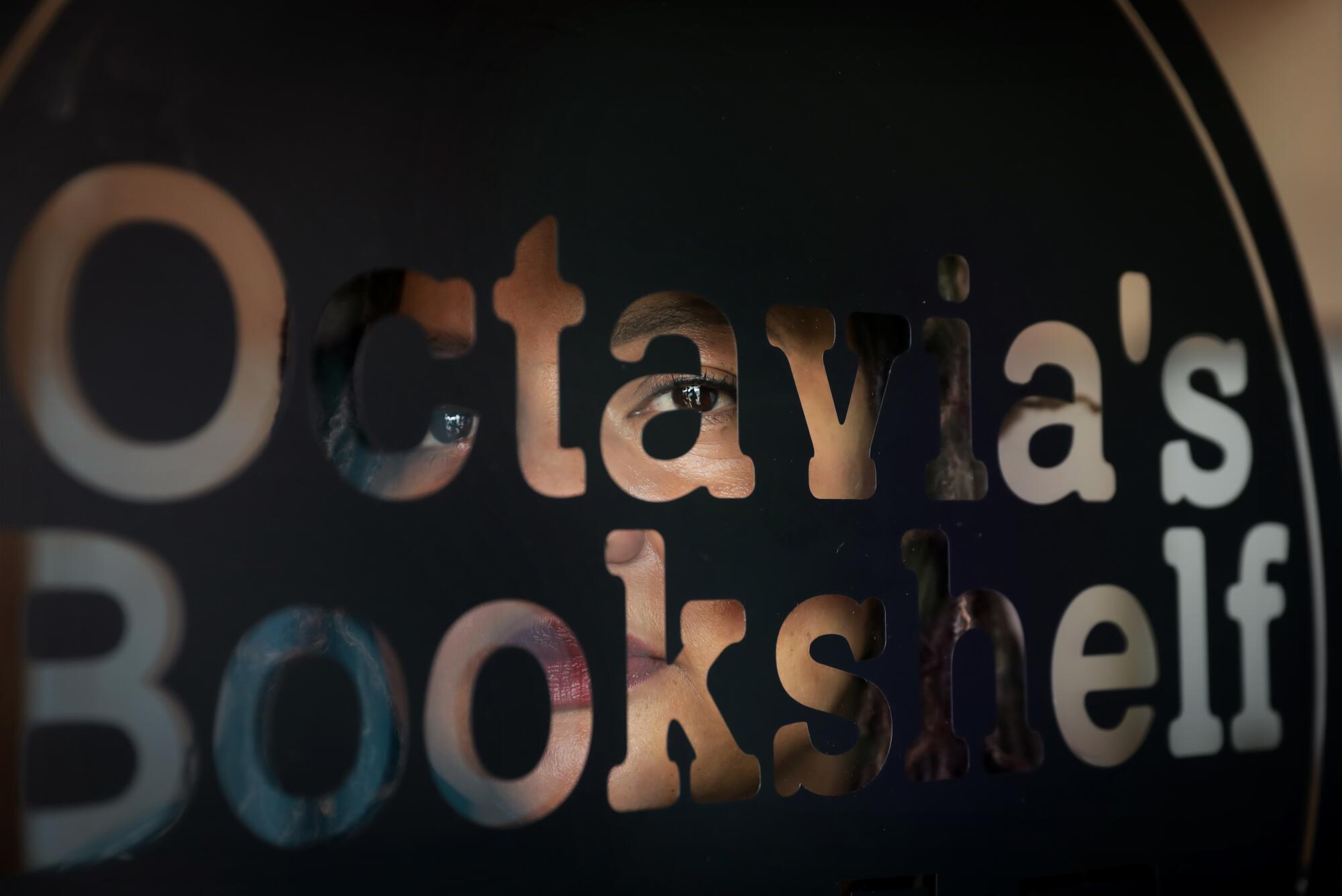
Butler’s legacy in Pasadena has only grown over the years since her death. Institutions have renamed buildings in her honor, including a middle school, said George.
In 2020, Butler’s 1993 novel “Parable of the Sower” became a New York Times bestselling book for the first time. The novel told of a post-apocalyptic society dealing with climate crisis and wealth inequality, themes that resonated for a nation grappling with the COVID-19 pandemic.
How local libraries shaped a sci-fi legend
“In some ways, the fact that this store is going into a neighborhood that she was familiar with, between two libraries she visited, does have a lot of significance and resonance for the people who live here and for the people who remember her,” George said.
High said she recognizes Butler’s ties to the city through her novels and writings. In “Parable of the Sower,” Butler describes walking the foothills of Pasadena. In her award-winning short story “Speech Sounds,” the protagonist has lost the ability to read and write as she tries to navigate back to Pasadena, taking Hill Street and Washington Boulevard.
“Just hearing little mentions of different streets or freeways … you knew she was coming here,” High said. Now her name adorns one more place, very close to home.
More to Read
Sign up for our Book Club newsletter
Get the latest news, events and more from the Los Angeles Times Book Club, and help us get L.A. reading and talking.
You may occasionally receive promotional content from the Los Angeles Times.


